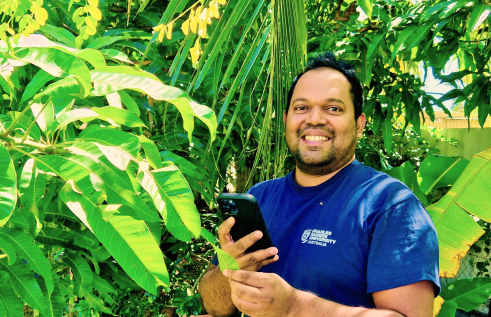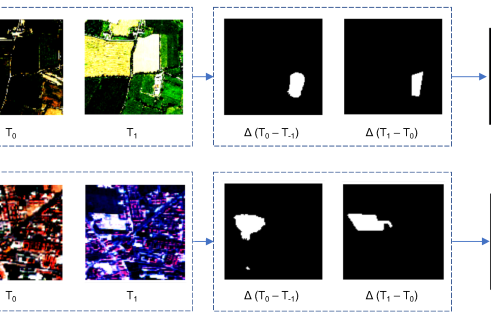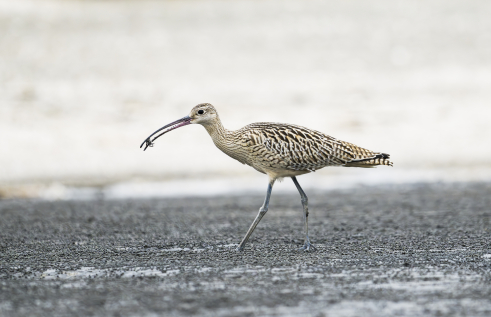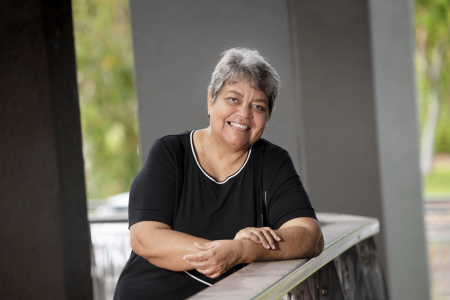News
HEAL network to tackle health impacts of climate change
Northern Territory researchers will champion First Peoples knowledge of the environment as a part of a new national research network to combat climate-change related health issues.
Charles Darwin University (CDU) and Menzies School of Health Research researchers are part of the 100 researchers in the new Healthy Environments and Lives (HEAL) network, which aims to protect the health of Australians impacted by climate change.
Aboriginal and Torres Strait Islander leadership and knowledge will be at the heart of the HEAL network, which includes a focus on how climate change is disproportionately affecting people living in rural and remote communities and regions.
Announced today by Health Minister, the Hon Greg Hunt MP, the Healthy Environments and Lives (HEAL) network brings together Aboriginal and Torres Strait Islander knowledge, sustainable development, environmental epidemiology, and data science and communication to address climate change and its impacts on health.
CDU’s Northern Institute Associate Professor Linda Ford leads the university’s leadership in the HEAL network will focus on ancient oral traditions applicable and relevant to Aboriginal and Torres Strait Islander knowledges that can be used to better engage Indigenous communities to share their oral histories.
“The project will offer opportunities to work collaboratively together with indigenous researchers to engage with other Indigenous people and Australia's near neighbouring countries overseas where people are experiencing climate change impact,” Associate Professor Ford said.
Northern Territory (NT) Hub Leader of the HEAL Network, Menzies Director Professor Alan Cass said the network will bring together Aboriginal and Torres Strait Islander knowledge, scientists, clinical researchers and health practitioners across all Australian states and territories in a combined effort to find solutions to the burden presented by climate change.
“As a school of health research, Menzies has worked in Australia’s tropical north and desert centre for decades. Across our areas of work, from chronic conditions including kidney failure to tropical infections such as melioidosis; we see the effects of climate and environmental change on health and wellbeing,” Professor Cass said.
HEAL is led by The Australian National University (ANU) and the initiative made possible with $10 million in Federal Government funding through the National Health and Medical Research Council (NHMRC).
HEAL currently comprises 100 researchers and is looking to attract young people interested in the field of environmental health research.
ANU Vice-Chancellor Professor Brian Schmidt said climate change is having a profound impact on our environment, our lives and our health.
“That’s why this new network is so vital. As climate change impacts our health and environment more and more, we will need sound solutions and the best thinking to address these negative impacts and keep ourselves and our environment as healthy as possible,” Professor Schmidt said.
Related Articles

Rooting out plant diseases: Are computers ready to run our farms?
Nature is still too complex for artificial intelligence (AI) modelling to be effective, but the tipping point is close, according to a new study that found the technology may still trip at the last real-world hurdle.
Read more about Rooting out plant diseases: Are computers ready to run our farms?
Tech on the treetops: How AI can protect forests
The Artificial Intelligence model was developed to detect changes in forest cover.
Read more about Tech on the treetops: How AI can protect forests
Volunteers protected Darwin wildlife for 50+ years, but new research suggests it’s time to stop winging conservation efforts
Volunteers have shouldered the burden of shorebird conservation in the Top End for more than half a century, but new research from Charles Darwin University (CDU) suggests it’s time for the government to take responsibility for all of the Northern Territory’s residents – including those with wings.
Read more about Volunteers protected Darwin wildlife for 50+ years, but new research suggests it’s time to stop winging conservation efforts
